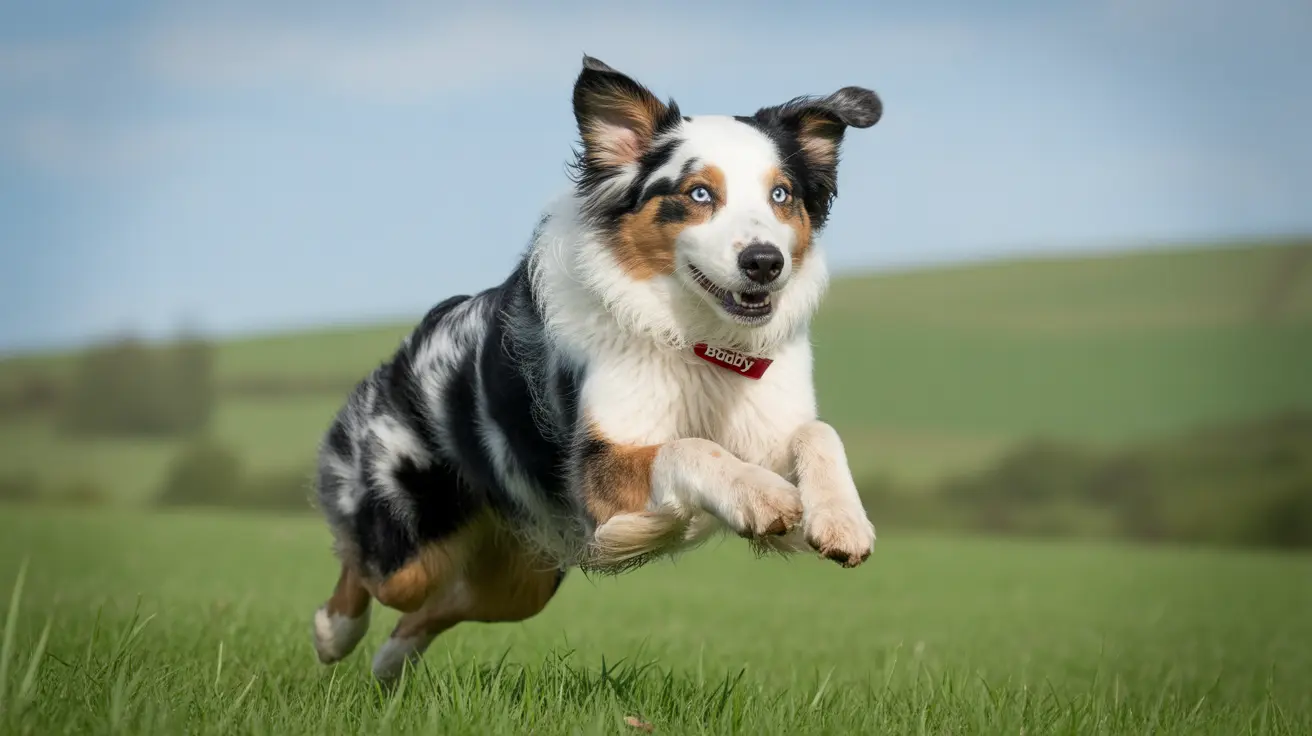Natural Causes of Bunny Hopping in Dogs
Dogs may hop like bunnies for several benign reasons. Young puppies often display this behavior as their coordination develops, typically outgrowing it by adolescence. During play or moments of excitement, even adult dogs might briefly hop around, especially during "zoomies" or while chasing toys.
Some breeds naturally tend to hop or pounce, particularly when moving through tall grass or hunting. This behavior connects to their ancestral hunting instincts, where pouncing helped them catch prey.
Medical Conditions That Cause Bunny Hopping
Hip Dysplasia
Hip dysplasia is one of the most common medical reasons for bunny hopping. This genetic condition affects the hip joint's formation, causing discomfort and altered movement patterns. Large breeds like German Shepherds and Labrador Retrievers are particularly susceptible.
Patellar Luxation
Also known as "floating kneecap," this condition commonly affects smaller breeds. When the kneecap slips out of position, dogs may hop to compensate for the instability and discomfort.
Identifying Problem Signs
Watch for these warning signs that might indicate your dog's bunny hopping is cause for concern:
- Persistent hopping behavior
- Signs of pain or discomfort
- Difficulty getting up or lying down
- Reduced activity levels
- Whining or yelping during movement
- Visible lameness or limping
Prevention and Treatment Options
If your dog's bunny hopping seems concerning, consider these steps:
- Schedule a veterinary examination
- Maintain a healthy weight
- Provide appropriate exercise
- Consider joint supplements (under veterinary guidance)
- Implement home modifications for safety
- Follow prescribed physical therapy routines
Frequently Asked Questions
Why does my dog hop like a bunny instead of walking normally?
Dogs may hop like bunnies due to playful behavior, excitement, or underlying medical conditions. While occasional hopping during play is normal, consistent bunny hopping might indicate joint problems or neurological issues.
When is bunny hopping in dogs a sign of a health problem like hip dysplasia or patellar luxation?
Bunny hopping becomes concerning when it's frequent, accompanied by pain, or occurs during regular walking. If your dog shows signs of discomfort, stiffness, or reluctance to move, these could indicate serious conditions requiring veterinary attention.
How can I tell if my dog's bunny hopping is playful behavior or caused by pain?
Playful bunny hopping typically occurs during excitement or play and stops when the activity ends. Pain-related hopping is more consistent, may be accompanied by whining or reluctance to move, and often occurs during regular walking or standing up.
What should I do if my dog frequently bunny hops and shows signs of discomfort?
If your dog frequently bunny hops and shows signs of pain, schedule a veterinary examination immediately. Early diagnosis and treatment can prevent the condition from worsening and improve your dog's quality of life.
Can certain dog breeds be more prone to bunny hopping due to genetic joint issues?
Yes, certain breeds are more susceptible to conditions that cause bunny hopping. Large breeds like German Shepherds and Labrador Retrievers are prone to hip dysplasia, while small breeds like Chihuahuas and Yorkshire Terriers more commonly experience patellar luxation.






